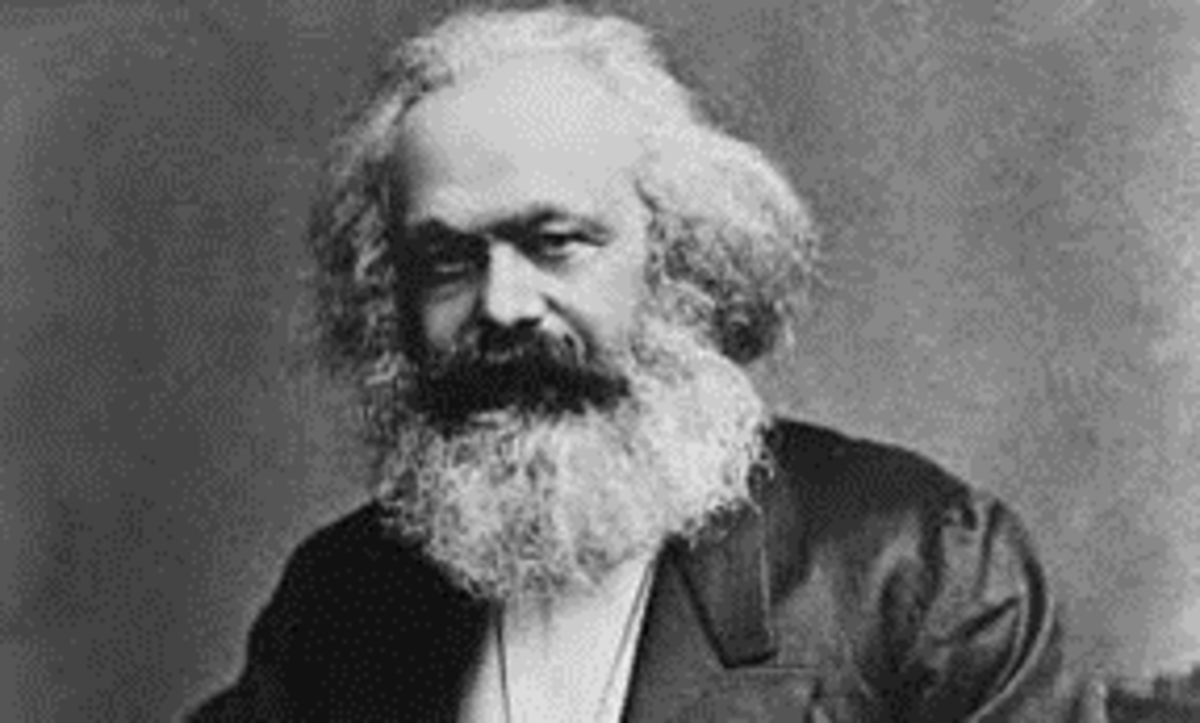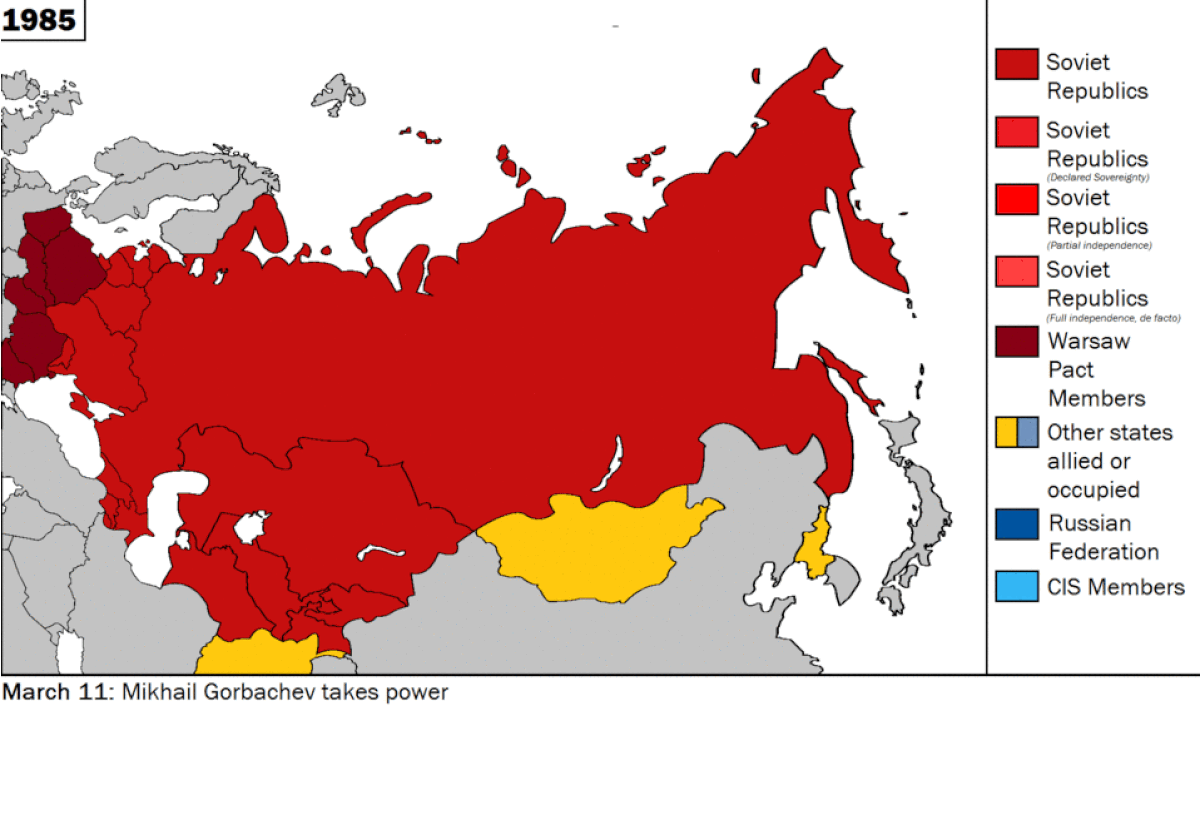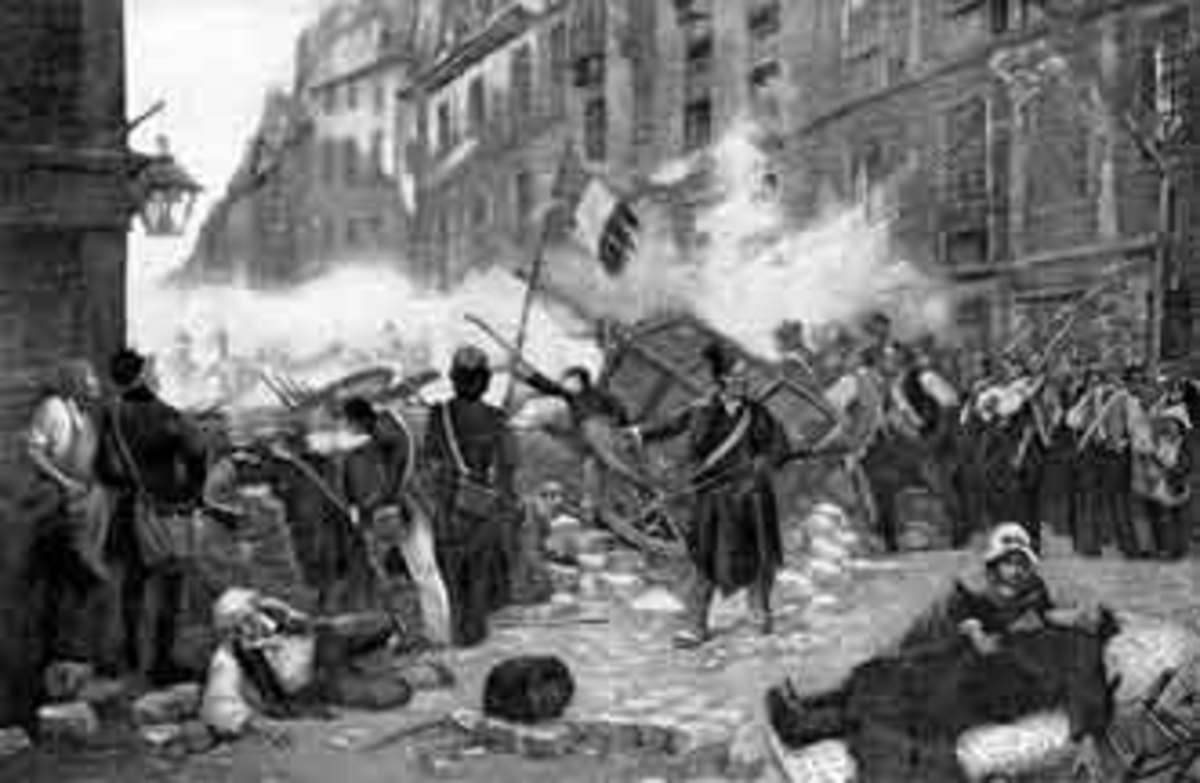Language and Politics: The American-Soviet Cold War (Part Two)

"Isms"
Read Part One: http://wingedcentaur.hubpages.com/hub/Language-and-Politics-The-American-Soviet-Cold-War-Part-One
I am not fond of trying to describe economic systems as "isms"---capitalism, socialism, communism, etc.
Take capitalism, for instance. Why is it that we are not satisfied with the one word for it? Some people say that we are living in the era of late capitalism. Some people call it neoliberalism, by which they mean capitalism-on-steroids.
Some Republican partisans refer to President Obama as a socialist. Either this term is used as a pejorative, when they are unhappy with them (and truthfully, when are they not unhappy with him?); or its application is more heartfelt and sober. That is to say, there are those for whom Obama's liberalism---such as it is---is sufficiently "redistributionist" in nature, so as to qualify for the label---if only!
Some people refer to the allegedly former Communist China's economic system as authoritarian capitalism. We used to refer to the relatively progressive Western European countries---as well as Canada and Australia---not as "capitalist," strictly speaking, but as "social democracies." Moreover, as you well know, some American critics of the American system, refer to it as "crony capitalism" or "socialism for the rich," and so forth (1).
Still, when the system enters a modality which displeases them, some people invoke the term finance capitalism---as though finance had not been an integral part of capitalism from its first day.
Of course, what the existence of all of these terms imply, is that somewhere, "out there," there is a pure and true capitalism, which has been distorted and perverted somehow, messing everything up. If that were true---IF---then we might ask this question: Is there something about "pure and true" capitalism which makes it so extremely difficult, if not impossible, to adhere to?
If the answer to that question is "yes," then can capitalism be said to actually exist? Or should we think of "capitalism" as an abstract aspiration like "God"?
You know, Gandhi was once asked what he thought of Western civilization. His answer, famously, was that he thought it was a good idea. The legendary linguist, political activist, and scholar, Noam Chomsky, liked to use that quote, in an ironic way, substituting the word capitalism for Western civilization.
So we have a situation in which, as I asserted in part one, "communism" is a phantom-concept and, at best, "capitalism" appears to be a moving target.

The reason that the discussion we just held, above, is not a mere abstract exercise, is because one should know what he is before he says someone else is or is not that or something else. Does that make sense? What we want to try to do is get our feet on solid ground.
Why was Russia (and the Soviet Union) conceptually kicked out of the capitalist club by America and the West, and then demonized as "communists"?
What did this demonization (as "communists") conceal, as it relates to the true motives behind the American (and the Western)-Russian (and Soviet Union) Cold War?
I put those two questions in bold so that we always keep what we're trying to do in the forefront of our minds, as we proceed.
You know what?
It may be that no country actually achieves the ideal of its economic philosophy. Perhaps there is always something abstractly aspirational about it.
We can skip several steps, to save time, by simply saying this: The United States is a believing-in-capitalism society; and Soviet Russia was a believing-in-communism society. That works, right?
Well, as I indicated in part one, the latter half of that equation only works, if and only if, it can ever be established---via the research project I proposed for media historians, in part one---that the term "communist" was an internally-generated word, meaning that Russians were found doing a unique set of economic practices, to which they affixed the label of "communist" to.
Question: Karl Marx and Friedrich Engels wrote The Communist Manifesto, didn't they?
Answer: It matters how the term "Communist" was being used by them, at the time. It is known that "commune" did refer to a form of local village administration (2).
Let me ask you something: For those of you old enough to remember, do you remember the time when people would get all excited when someone said something like ("Workers of the world, unite!")? Remember that?
People would get upset, hot and bothered because such a formulation was clearly "Red" Communist, and therefore evil, and so on and so forth.
But that sentiment is embedded, in principal, in an important way in the American labor movement---such as it is anymore. Often you have the word "International" in the full name of the union. The sense is that working people have to unite the world over to make conditions better for all.
Employers unite, corporations unite through interlocking directorates. The global power elite (corporate, political, military) unite through all kinds of organizations: Council on Foreign Relations, Trilateral Commission, World Bank, International Monetary Fund, and so forth.
Anyway, I have not read The Communist Manifesto, but perhaps Marx and Engels were using the word in the "global village" sense. Maybe it was just an attempt to get people to start conceptualizing what a united world worker agenda should look like. As I said, the global elite are certainly always hard at work trying to conceptualize what a united world order catering to their interests should look like.

Question: So, if Soviet Russia was never a believing-in-communism society, what were they?
Answer: If the United States was a more privatized, believing-in-capitalism society, Soviet Russia was more of a statist, state-capitalist, believing-in-independence society. That's the short answer.
I am going to be arguing that the Bolshevik Revolution was as noble, heroic, and important to world history as the American Revolution, the French Revolution, the Haitian Revolution, the Cuban Revolution.
I am going to be arguing that the American (and the West) and Russian (and Soviet Union) Cold War was not about anti-communism, "communism" being a phantom-concept.
I am going to be arguing, instead, that the Cold War was a case of white-on-white, imperial racism.
I will go into detail about this in part three. Basically, white-skinned people of Northern and Western European extraction see themselves as something called "Anglo-Saxon" stock (You heard the term "WASP," white, Anglo-Saxon, Protestant).
Russians and Eastern Europeans are Slavic (and other ethnicities). Russians, I understand, are Slavic.
For centuries "WASPs" have had a problem with people of southern and eastern European extraction; this has to do with Saxon chauvinism, which sees Slavic and Eastern Europeans---if I may be so crude---as tainted white people, who have become so due to excessive miscegenation with Africans and Turks. A lot of things follow from this. We'll talk about it in part three.
I will be arguing that the American (and Western) powers-that-be called on the Cold War against Soviet Russia, for the surface justification of "Thwarting Red, Soviet Communist, tyrannical world domination" because it sounded more professional than "We gotta put those Slavs back in their place!"
We'll leave it there.
Thank you so much for reading!
Read part three
http://wingedcentaur.hubpages.com/hub/Language-and-Politics-The-American-Soviet-Cold-War-Part-Three
References
1. On the American system having been degraded into a "crony capitalism" or "socialism for the rich," due to the abandonment of whole series of common sense rules of law, finance, and public policy see: Johnston, David Cay. Free Lunch: How The Wealthiest Americans Use The Government To Enrich Themselves (And Stick You With The Bill). Portfolio, 2003; and Johnston, David Cay. Perfectly Legal: The Covert Campaign To Rig Our Tax System For The Benefit Of The Super Rich---And Cheat Everybody Else. Portfolio, 2007.
2. Service, Robert. A History Of Twentieth-Century Russia. Harvard University Press, 1997. 5-6.
Robert Service wrote: "In Russia the main rural institution was the village land commune. This body meted out justice according to local understandings about economic and social fairness. In some areas this involved the periodic redistribution of land among the households of the commune; but even where land was held fixedly, peasants continued to comply with the decisions of the commune. A degree of egalitarianism existed. There was also a tradition of mutual responsibility, a tradition that had been fortified by the Emancipation Edict of 1861 which levied taxes from the village commune as a whole rather than from particular households or individuals. Peasants were accustomed to acting collectively and to taking decisions among themselves about life in the village.
"But this did not mean that the peasantry's conditions were wholly equalized. A handful of households in a commune would be better off than the rest; and the affluent peasants became known as kulaki (which in Russian means 'fists'). They lent money, they hired labour; they rented and bought land. Poorer households, especially those which lacked an adult male and had to get by with youngsters doing the work, tended to decline into penury. Life was nasty, brutish, and short for most peasants."








